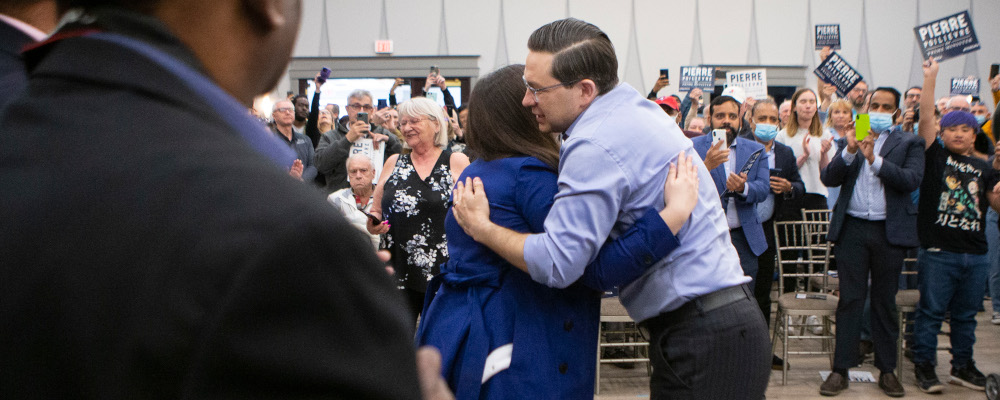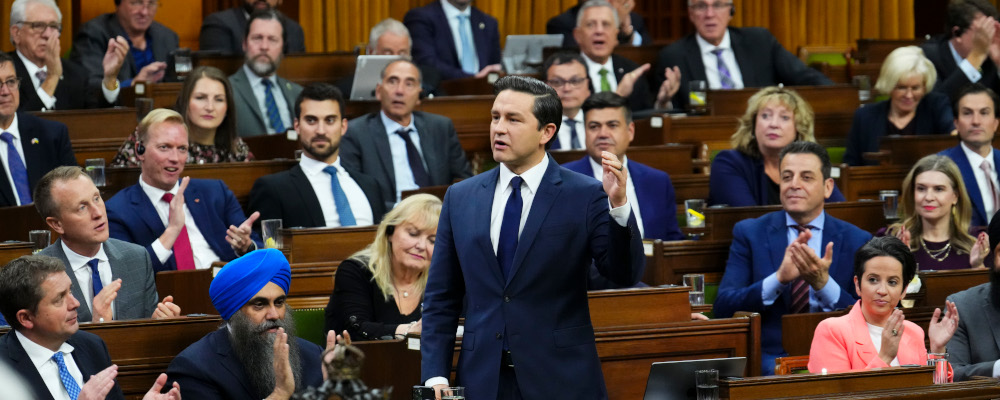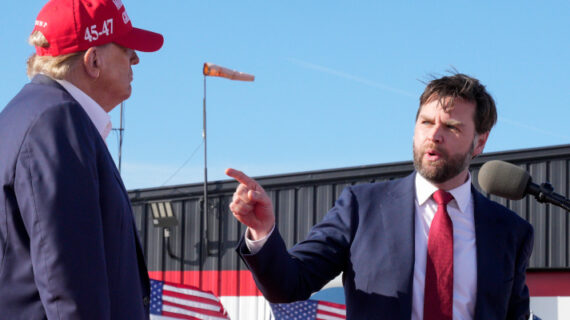This week, Conservative candidate Jamil Jivani’s win in the Durham by-election portends a broader political trend that’s behind Pierre Poilievre’s broad-based appeal and the reason why he’s the favoured choice for Canada’s next prime minister.
Laying out Poilevre’s own key message, Jivani spoke about how the working class is being betrayed by the Trudeau government and other major Canadian institutions, including universities and big business.
The themes of his speech—including the notion that working-class Canadians have been left behind, or worse, taken for chumps by big corporations and big government—align with a speech that Poilievre himself recently delivered to the C.D. Howe Institute in Toronto. The remarks were more than a routine address. They were a declaration of his priorities and a preview of his potential style of governance.
Poilievre began by saying bluntly that “after eight years of Trudeau, life is increasingly a living hell for the working-class people of this country.” He then drew on a devastating body of data and evidence to convey the challenges facing everyday Canadians. The facts tell a compelling story of struggle.

Housing costs have doubled over the last decade, with rent growing from an average of about $900 to roughly $2,000 per month. The IMF says that Canada has the most dangerous mortgage debt in the entire OECD, warning that our country has the highest risk of mortgage defaults. Millions of Canadians are using food banks. These inconvertible facts are increasingly causing people to question whether the country’s economic and political systems are skewed against their interests. They are rightly angry.
Poilievre has given them a voice. He is from and for Main Street and his appeal is clearly resonating. Don’t believe it? Take a peek at some of his visits to traditionally working-class communities like Windsor and St. John’s, where Liberals and New Democrats have dominated federal politics for decades. Ask a service worker the next time you’re buying coffee whether they feel like they are getting ahead. When Poilievre speaks, the polling shows working Canadians feel like he cares about them.
Some of the anger from Canadians toward the federal government is stemming from a sense of betrayal. Justin Trudeau’s 2015 campaign line about “being there for the middle class and those trying to join it,” was a highly effective mantra. Millions of Canadians responded positively to it. In fact, it’s a key reason why he won a majority government.
Trudeau’s precipitous drop in public opinion polls lends weight to the betrayal hypothesis. While Poilievre’s communications and policy are key drivers of his own support, there’s the accumulating picture of an effete, out-of-touch prime minister who hasn’t lived up to his promise as a champion of the middle class.
Poilievre’s early warnings about inflation, famously predating Bay Street and the Bank of Canada, has given him a huge advantage—namely, real credibility—on these issues with ordinary voters. He was speaking about inflation and the now-present housing crisis before business, the media, and, of course, the Trudeau government started to.
Just as important is the communications revolution powered by social media, which is enfranchising all kinds of new voters. The rise of platforms like YouTube and the end of traditional media are drawing in people who previously wouldn’t have paid attention to politics. Imagine how much larger the Diefenbaker and Mulroney majorities might have been with YouTube channels instead of only the Toronto Star, the Winnipeg Free Press, and CBC dominating the media landscape. These developments have given Poilievre the ability to reach Canadians who may not have voted Conservative in the past, or who perhaps didn’t vote at all.
But his success thus far isn’t merely about communications. He’s signaled that he plans to challenge corporate interests and bureaucratic inefficiencies head-on. His stance on increasing competition, especially in protected sectors, suggests a readiness to disrupt the status quo for greater service and affordability, and could potentially include leveraging the tax code to encourage foreign investment and competition.
It’s well known in Ottawa that the Business Council of Canada, whose members are the CEOs of Canada’s largest companies, can’t even get a meeting with Poilievre. Rather than the council’s CEOs, Poilievre has said he’ll gladly meet with the employees and workers of the companies themselves. If that’s not a wake-up call for those who run these companies, I don’t know what is.

And it’s not just corporate interests who are in the crosshairs of voters who want to see change in Ottawa. Federal agencies like Service Canada, Passport Canada, and the CRA are regularly subject to complaints by Canadians who are having trouble receiving basic government services. Voters will expect improvement in how these agencies operate and serve Canadians.
Poilievre’s style, though unorthodox for some and polarizing for the elites that his leadership threatens, underscores his connection to the electorate he works for. The people have had enough. They believe the system doesn’t work for them, they are falling further behind, and they are looking to send a wrecking ball to Ottawa to break down the obstacles to change. Poilievre may not be everyone’s cup of tea, but he’s the choix du jour of millions of Canadians who are dying to send a message to Ottawa and those special interests Ottawa protects.
How would Poilievre harness this desire for change? Let’s take the example of competition reform. Maybe it’s time for increased foreign competition in protected sectors, an approach that could and should provide fodder for the next round of USMCA discussions which are slated for July 2026.
Airlines, airports, telecoms, and banks will have to go beyond proposing the removal of gatekeepers and taxes to improve service and lower costs. The ultimate lever that any prime minister can use to force business action is through competition. Poilievre’s views on the importance of market forces driving behaviour are illustrative of how he might tackle problems that regular Canadians are facing relating to travel, cell phone bills, or their mortgage.
The carrot of increased access to the Canadian market for U.S. firms could be an opportunity for Canada to resolve some very big, long-standing issues with our American neighbours. Imagine inking a long-term deal with the White House and Congress on softwood lumber access for Canadian firms on the back of introducing U.S.-based competition in our domestic telecom sector. Governing is about trade-offs, and that hypothetical example is a trade-off that exhibits the kind of bold thinking Poilievre ought to embrace in the service of working-class Canadians.
Whether the Conservatives can win an election is still up to the will of voters. Recent party leaders have missed scoring into an open net, so anything is possible. But should Poilievre win, he’s been very clear about who he’ll be governing for: those Main Street Canadians who have too often been forgotten and left behind.




